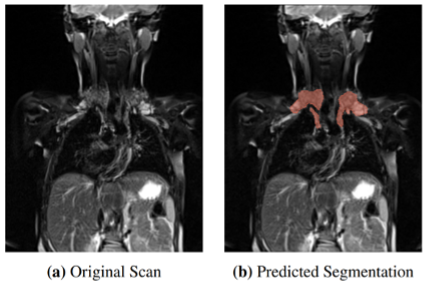IDEA Lab and paediatricians at University Hospital Erlangen (UKER) develop ML Tool for Improved Assessment of Fontan Circulation Complications
A new collaboration between Researchers from the IDEA Lab at Friedrich-Alexander University Erlangen-Nürnberg and paediatric specialists at the University Hospital Erlangen (UKER) aims to evaluate congenital heart disease (CHD) in children over time.
Researchers have developed a Machine Learning (ML) tool to improve the diagnosis and assessment of severe complications in patients with Fontan circulation, a surgical treatment for various single-ventricle congenital heart conditions. While survival rates have improved, patients remain at risk for complications like protein-losing enteropathy and plastic bronchitis, often due to lymphatic system congestion.
The new tool automates the complex and time-consuming process of annotating lymphatic perfusion patterns in MRI scans and supports the classification of lymphatic perfusion patterns by clinicians. This innovation promises to streamline clinical workflows, improve long-term patient monitoring, and enhance patient care by enabling precise and rapid assessments.
We thank the Erlangen National High Performance Computing Centre (NHR@FAU) for maintaining our computational resources and for their support.
https://link.springer.com/chapter/10.1007/978-3-658-44037-4_70


